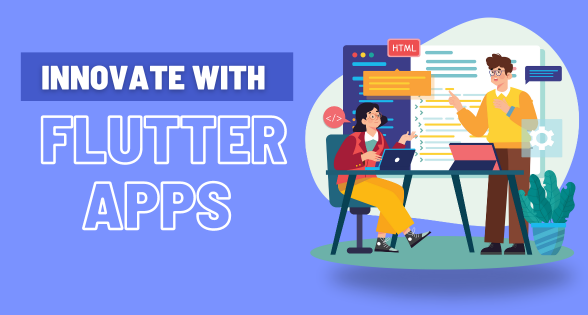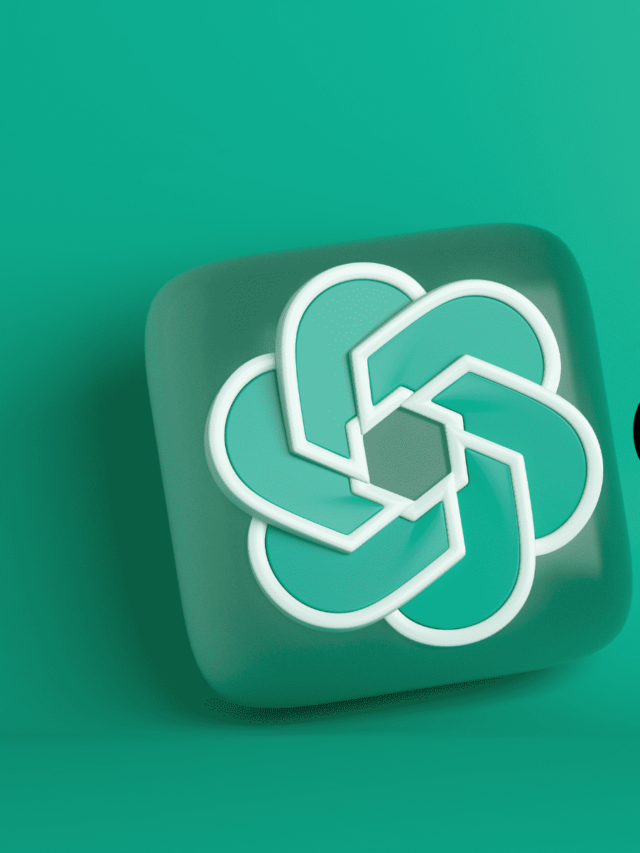
In the fast-changing world of mobile app development, picking the right framework is key to the success of your project. With many options out there, Flutter app development has become a standout, giving developers a strong and efficient way to build apps that work on multiple platforms. This blog looks into what makes Flutter special, explains why it’s become a favorite among developers worldwide, and shows how it can be used to create top-quality mobile apps.
Understanding Flutter: A Brief Overview
Flutter is a free and open-source tool created by Google for building user interfaces (UI). It helps developers make apps that work on mobile, web, and desktop platforms using just one set of code. The main programming language used in Flutter is Dart, also developed by Google, which is known for being easy to learn and very efficient. Since its launch in 2017, Flutter has become very popular because it’s easy to use, flexible, and capable of creating beautiful, high-performance apps.
A distinctive feature of Flutter app development is its widget-based system. In Flutter, everything is built using widgets that can be combined to create complex UIs. This approach not only simplifies the development process but also ensures that the UI remains consistent across different platforms.
Why is Flutter App Development So Popular?
Flutter app development has surged in popularity for several key reasons. Let’s explore some of them:
1. Cross-Platform Development
One of the biggest advantages of Flutter app development is the ability to develop apps for multiple platforms using a single codebase. Whether you’re targeting Android, iOS, web, or desktop, Flutter ensures a uniform user experience across all devices. This reduces both development time and costs while making it easier to maintain and update the app in the long run.
2. Hot Reload Capability
Flutter app development is renowned for its hot reload feature, which allows developers to see the results of code changes instantly, without restarting the app. This feature is especially valuable when testing new UI designs or troubleshooting bugs. The hot reload capability accelerates the development process and enhances productivity.
3. Rich Set of Widgets
Flutter provides a vast collection of pre-built widgets that can be customized to create unique and visually appealing user interfaces. Whether you need simple buttons or intricate animations, Flutter app development offers all the tools necessary to bring your ideas to life. The widgets are optimized for performance, ensuring that your app runs smoothly even on devices with lower specifications.
4. High Performance
Performance is a critical aspect of mobile app development, and Flutter excels in this area. Unlike some other cross-platform frameworks that rely on web views or native components, Flutter compiles directly to native code. This results in fast and responsive applications, making Flutter app development an excellent choice for apps that require complex animations or manage large volumes of data.
5. Strong Community and Documentation
As Flutter’s popularity grows, so does its community of developers. This active community is an invaluable resource for anyone involved in Flutter app development. Developers can seek support, exchange knowledge, and contribute to the ongoing improvement of the framework. Furthermore, Flutter’s official documentation is detailed and well-organized, making it easier for developers to find the guidance they need.
6. Google’s Backing
As a Google product, Flutter app development benefits from ongoing support and investment from one of the world’s leading tech companies. Google’s backing ensures that Flutter is regularly updated with new features and improvements, keeping it at the forefront of mobile app development technologies.
The Technical Backbone of Flutter App Development
Flutter is built on a solid technical foundation, which makes it a powerful tool for developers. Here’s what contributes to the strength of Flutter app development:
Dart Programming Language
Dart is the primary language used in Flutter app development. It’s simple, efficient, and tailored for UI development. Dart supports strong typing and asynchronous programming, making it ideal for building responsive apps with complex functionality.
Flutter Engine
The Flutter engine, written in C++, uses the Skia graphics library to ensure smooth animations and high frame rates across different platforms. This engine allows for consistent rendering on Android, iOS, and other platforms, making Flutter app development a reliable option for high-performance applications.
Widgets
Widgets are the core building blocks of Flutter. They allow for flexible and customizable UI designs. Flutter offers Material Design widgets for Android and Cupertino widgets for iOS, along with the flexibility to create custom widgets tailored to your needs.
State Management
Flutter provides various state management options, ranging from the simple setState for local state management to more advanced solutions like Provider, Riverpod, and Bloc for managing complex application states across multiple widgets.
These key components make Flutter app development a robust choice for creating high-quality, cross-platform applications.
Comparing Flutter App Development with Other Frameworks
In the realm of mobile app development, several frameworks vie for developers’ attention. While each has its strengths, Flutter app development offers unique benefits that set it apart. Here’s a look at how Flutter compares with some popular alternatives:
React Native
- Both Flutter and React Native allow for cross-platform development with a single codebase.
- React Native uses JavaScript, while Flutter relies on Dart.
- Flutter’s direct compilation of native code often results in better performance, particularly for apps with complex animations.
- Flutter’s widget-based architecture provides greater flexibility in UI design.
Xamarin
- Xamarin, owned by Microsoft, also supports cross-platform development.
- Xamarin uses C# and the .NET framework for code sharing across platforms.
- While Xamarin integrates well with Microsoft’s ecosystem, Flutter offers a more modern approach with its hot reload feature.
- Flutter’s extensive widget library and consistent UI across platforms enhance the user experience.
Native Development (Swift/Java/Kotlin)
- Native development requires separate codebases for each platform (e.g., Swift for iOS, Java/Kotlin for Android).
- This approach offers the highest level of control over platform-specific features.
- However, native development demands more time and resources.
- Flutter, in contrast, allows for the creation of apps for multiple platforms using a single codebase, significantly reducing development time and costs.
- While native development may be necessary for certain specialized apps, Flutter provides a strong alternative for most projects.
The Steps in Flutter App Development
With an understanding of Flutter’s benefits and technical strengths, let’s walk through the typical process of Flutter app development. This will help you better plan and manage your app development project.
Project Planning
- Before starting development, it’s crucial to plan your project thoroughly. This includes defining the app’s goals, identifying the target audience, outlining the features, and designing the overall structure. During this phase, you’ll also decide which platforms you want to support (e.g., Android, iOS, web) and the technologies you’ll use. Proper planning is essential for a successful Flutter app development project.
Setting Up the Development Environment
- To begin Flutter app development, you’ll need to set up your development environment. This involves installing the Flutter SDK and an integrated development environment (IDE) like Visual Studio Code or Android Studio. Once the environment is set up, you can create a new Flutter project and start coding.
UI/UX Design
- Flutter app development focuses on creating attractive and user-friendly interfaces. During the design phase, you’ll create wireframes and mockups of the app’s UI to ensure it aligns with the needs of your target audience. Flutter’s widget library offers extensive options for custom designs, enabling you to bring your vision to life.
Development
- With the design finalized, it’s time to begin coding. The development phase includes building the app’s UI, implementing features, and integrating backend services. Thanks to Flutter’s hot reload feature, you can see the results of code changes instantly, speeding up the development process and allowing for quick iterations.
Testing
- Testing is a critical part of Flutter app creation. It ensures that your app is free of bugs and performs well across all target platforms. Flutter offers various testing options, including unit tests, widget tests, and integration tests. Thorough testing is key to delivering a high-quality app that meets user expectations.
Deployment
- After development and testing are finished, the app is ready to be deployed. Flutter app creation makes it easy to deploy apps to both the Google Play Store and the Apple App Store. If you’re creating a web or desktop app, Flutter also offers straightforward deployment options for those platforms.
Maintenance and Updates
- After deployment, ongoing maintenance and updates are necessary to keep the app running smoothly and address any issues that arise. Flutter app creation makes it easy to roll out updates and add new features, ensuring that your app stays relevant and competitive.
The Future of Flutter App Development
Looking ahead, Flutter app creation is poised to become a major force in the app development industry. With continuous advancements and strong backing from Google, Flutter is well-equipped to meet the evolving demands of modern app development.
Growing Adoption
As more developers and businesses recognize the benefits of Flutter, we can expect its widespread adoption across various industries. Flutter’s ability to deliver high-quality, cross-platform applications quickly and efficiently makes it an attractive choice for companies looking to reach a broad audience.
Integration with Cutting-Edge Technologies
The future of Flutter app creation will likely involve deeper integration with emerging technologies like artificial intelligence (AI), machine learning, and the Internet of Things (IoT). These advancements will create new opportunities for developing innovative applications that interact with the world in unprecedented ways.
Support for Additional Platforms
While Flutter already supports a wide range of platforms, Google’s ongoing efforts to expand its capabilities will likely lead to support for even more devices and operating systems. This expansion will make Flutter a universal framework, enabling developers to build applications for virtually any platform.
Improved Developer Tools
Google is continuously improving the tools available for Flutter app creation. These enhancements will streamline the process of creating, testing, and deploying apps, further cementing Flutter’s position as a leading framework in mobile app development.
Conclusion
Flutter app development provides a strong and flexible solution for creating high-quality apps that work across multiple platforms. With its single codebase, hot reload feature, extensive widget library, and strong community support, Flutter is a great choice for developers of all experience levels. As Flutter continues to develop and expand, it is likely to become an even more essential tool in the app development world.
Whether you’re an experienced developer or just beginning your journey, embracing Flutter app development can unlock new opportunities and help you create apps that stand out in the competitive mobile market. With its growing popularity and ongoing innovation, Flutter is more than just a framework—it’s a gateway to the future of mobile app development.







